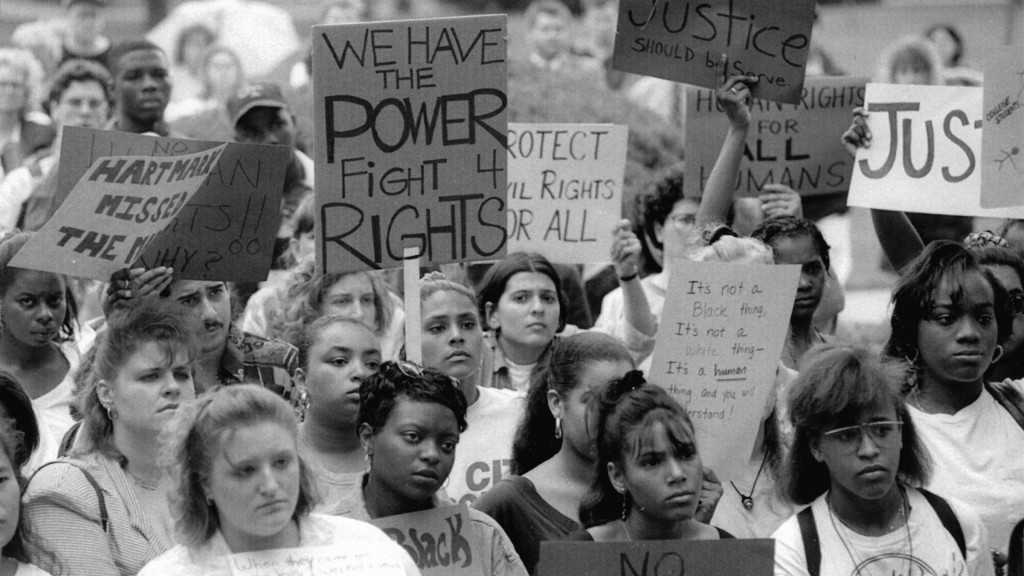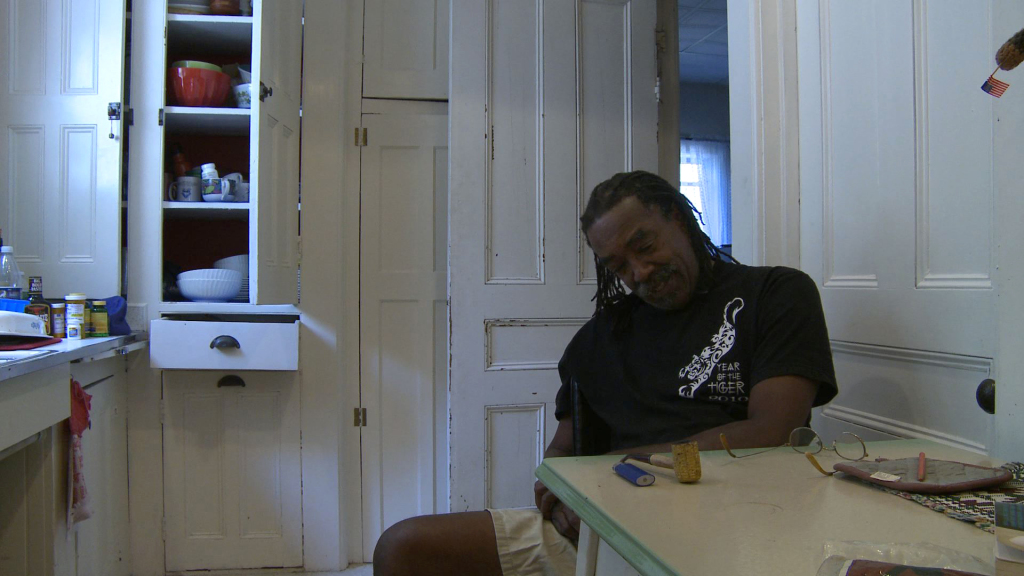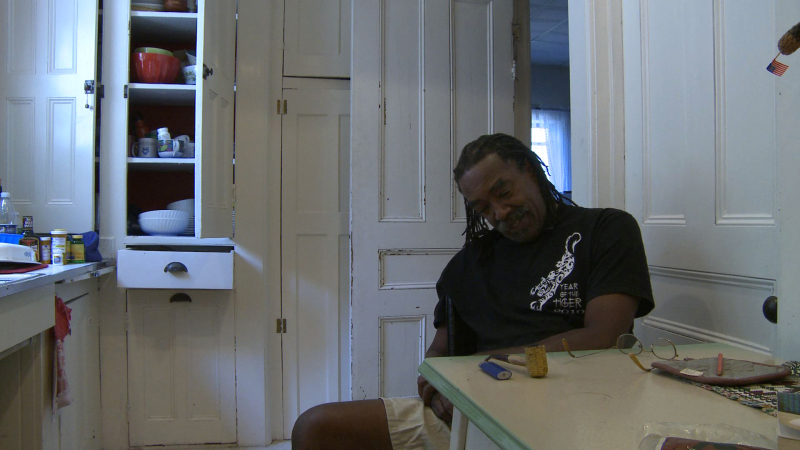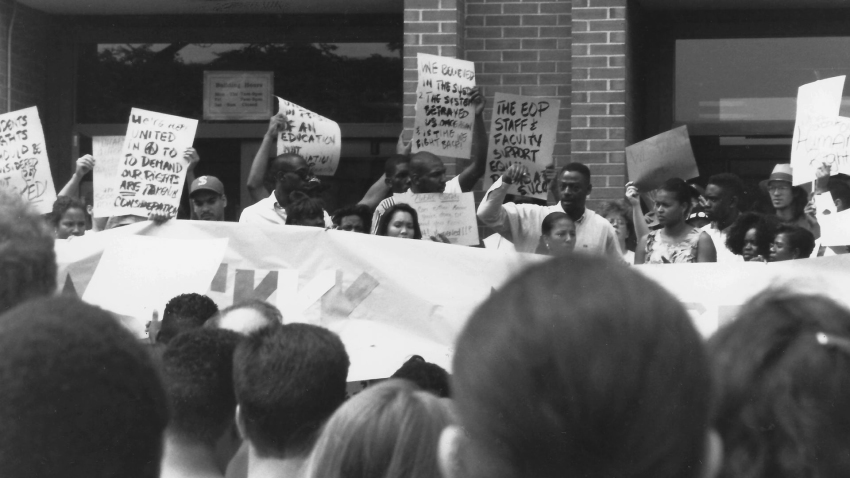Screenings and Venue:
Wedns. Nov. 19, 12:15 PM at Bow Tie Chelsea Cinemas
Thurs. Nov. 20, 9:30 PM at IFC Center
NYC PREMIERE
The 1990’s was a tumultuous time in New York City. The Central Park jogger rape trial convicted five young Black and Latino men, who many correctly thought were totally innocent, and multiple racially involved homicides of Black men and women occurred, along with an increase in despondency by the drug problem and subpar economics affecting everyone, but primarily urban youth. It was no surprise why so many people wanted to escape the city. But you cannot escape a systemic issue.
Many NYC and urban-raised young Black men and women were recruited to attend college at the State University of New York (SUNY) Oneonta in an effort to increase ‘minority’ (and overall) enrollment to the school and the upstate New York city. But these students, eager for an education and change from the concrete jungle, were not met with the kindest of welcomes from the lily white Oneonta community.
In the fall of 1992, after an attempted rape of an elderly woman off-campus, school administrators released a list of its Black male students to the police. The controversy that would ensue out of that led to the longest litigated civil-rights case in United States history. The actual Brothers of the Black List was formed to look into legal options for the students.

With archival footage and modern interviews from the victims and related parties that convey a tension building and emotionally-wrenching unraveling of history, Sean Gallagher’s Brothers of the Black List follows how this act of institutionalized racial profiling left an adversely negative tinge on the university, its students, sympathetic faculty, and the larger community. Key to building the story is Gallagher’s use of music, which perfectly catches the on-screen emotions.
As journalist Bob Herbert is quoted on-screen writing, “…this is beyond driving while Black…more like breathing while Black.” And as affecting as the varied interviews with the students are, most wrenching are those of student counselor and recruiter Edward ‘Bo” Whaley, the man responsible for seeing to the best interests of these young men. Whaley still lives in Oneonta, and pretty close to the school, but can barely bring himself to drive even near the campus. The film would still be significant without him, but with him it is exceptionally powerful.

For young non-white people raised in urban centers during that time period , especially in NYC the film will mean even more. The Central Park jogger rape case affects many of their sensibilities to this day, and seeing the “justifiable practices” of the Oneonta police and townspeople resonates those memories a thousand fold. The after-effects of the incident and the case, especially after the victims graduate, are disturbing leaving the viewer with fact that society has learned very little.
Presented by auteur director Jonathan Demme and co-presented by The Nation, Gallagher is expected to be in person for both screenings.
Official Site: http://www.brothersoftheblacklist.com
On Facebook: http://www.facebook.com/brothersoftheblacklist
Director: SEAN GALLAGHER
Producer: Sean Gallagher
Cinematographer: Sean Gallagher
Editor: Sean Gallagher
Music: Thom O’Connor
Running Time: 74
Language: English
Country: USA
For a full schedule of films visit www.docnyc.net


